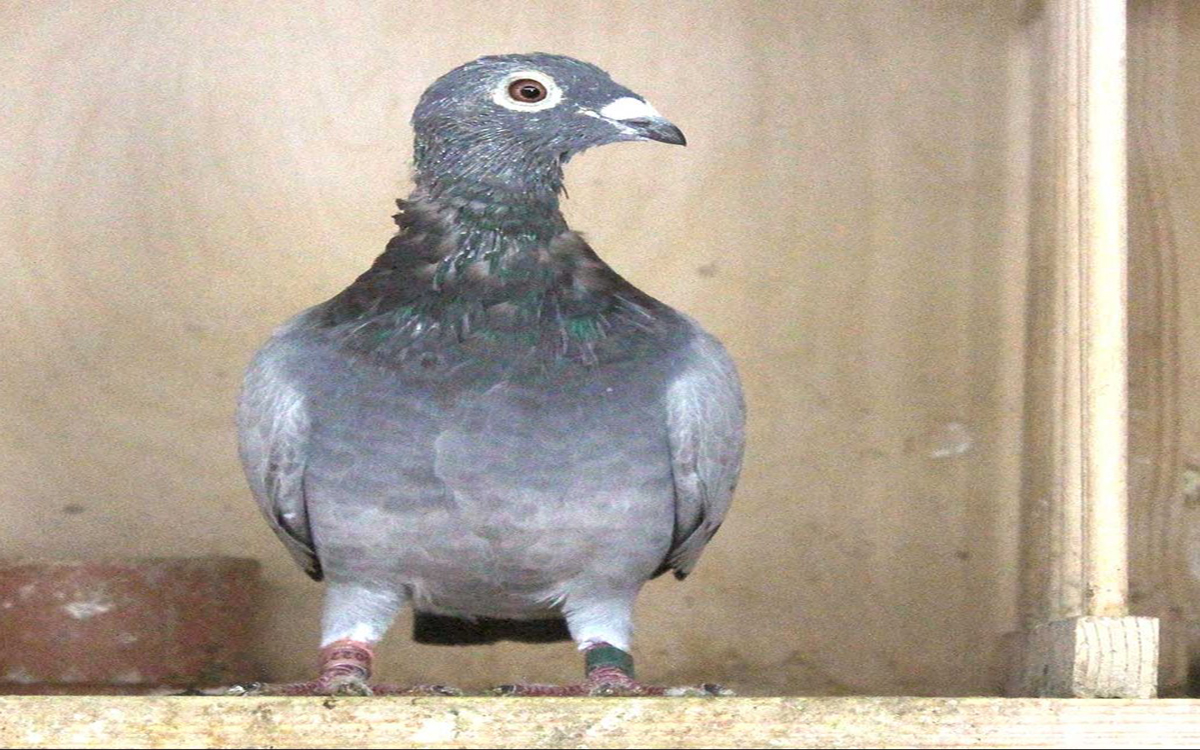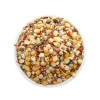
Signs of Unhealthy Molting After Winter
Signs of Unhealthy Molting After Winter in Racing Pigeons
Molting is a natural and essential process in racing pigeons, but when it becomes irregular or incomplete—especially after winter—it’s a red flag. Healthy molting leads to sleek, well-aligned feathers that enhance flight performance and offer protection. But unhealthy molting can compromise a bird’s stamina, immune health, and overall vitality. After a long, cold season, pigeons are especially vulnerable to molting issues due to fluctuating daylight, stress, or poor nutrition.
In this guide, we’ll cover how to identify unhealthy molting, what causes it, and how to support your birds through a smoother, healthier post-winter molt.
Why Molting Becomes Problematic After Winter
Winter can be hard on racing pigeons. While their activity is reduced during colder months, their bodies still endure significant challenges—cold temperatures, lower sunlight exposure, and possibly a drop in nutrient intake. These factors often lead to irregular or unhealthy molting patterns once the season changes.
Common Causes of Unhealthy Post-Winter Molting
-
Nutritional deficiencies (especially in vitamins A, D, E, B-complex, and minerals like zinc)
-
Internal or external parasites (such as mites or lice)
-
Dry loft conditions (leading to brittle, easily broken feathers)
-
Fluctuating daylight exposure (which confuses the bird’s hormonal signals)
-
Stress from sudden environmental changes
Visible Signs of Unhealthy Molting in Racing Pigeons
1. Patchy or Delayed Feather Loss
Healthy molting should be progressive and symmetrical. If pigeons show uneven bald spots, it’s a warning sign. Check the neck, back, and underwings—if these areas look patchy, something is off.
2. Dry, Flaky Skin
Dry skin on the breast or under wings is often linked to vitamin A or essential fatty acid deficiency. Poor skin condition leads to uncomfortable molting and affects new feather development.
3. Feather Breakage and Poor Regrowth
New feathers that are thin, dull, or break easily indicate a lack of biotin, amino acids, or protein. This not only affects performance but also puts pigeons at higher risk of feather infections.
4. Irritability or Constant Preening
Birds constantly scratching or picking at themselves may be battling feather mites or lice. Parasites thrive during and right after molting, taking advantage of compromised immunity.
5. Delayed Completion of Molt
If your pigeons still have pinfeathers or incomplete feather coverage well into the new season, their molt cycle may have been disrupted by disease or stress.
Diagnostic Checks to Confirm the Problem
Before jumping to solutions, you’ll want to rule out serious causes of unhealthy molting. Here’s how to perform a quick assessment:
-
Fecal examination: Check for internal parasites or coccidiosis.
-
Feather inspection: Look for signs of mites or lice.
-
Nutritional review: Evaluate if the current feed contains enough vitamins, minerals, and protein.
-
Environmental assessment: Ensure the loft has consistent lighting and humidity.
Consider submitting feather or skin samples to a lab if you’re seeing consistent molting issues across multiple birds.
Nutrition: The Foundation of Healthy Molting
1. High-Quality Molting Mix
After winter, racing pigeons benefit from a feed mix rich in:
-
Protein (16–18%) from legumes and peas
-
Moderate fat from sunflower or safflower
-
Whole grains like barley and wheat
2. B-Complex Vitamins
These are essential for cell regeneration and feather formation. B-complex deficiencies are a major cause of slow or irregular molting.
3. Biotin and Amino Acids
Biotin helps with skin health and feather flexibility. Pair with methionine and lysine (amino acids) for optimal feather growth.
4. Zinc and Vitamin A
Both support skin hydration and strong feather shafts. A deficiency in either results in dry skin and brittle feathers.
Supplements That Can Help
Boosting the feed with specific supplements ensures pigeons recover faster from post-winter molting issues. Consider adding:
-
Molting oil or conditioning oil – rich in omega-3 & omega-6 for shiny, resilient feathers
-
PHP Feather Restore or Biotin Complex – supports feather regrowth and skin health
-
Electrolytes and probiotics – keep gut function optimal, which enhances nutrient absorption
-
Liver-support supplements – like Silymarin or choline, especially after a stressful molt
Environmental Control During Molt
Nutrition alone isn’t enough—your loft environment plays a huge role in how well your birds molt.
Keep the Loft Warm but Not Dry
Use a small heat lamp if needed, but maintain humidity above 50% to prevent dry, flaky skin and feather breakage.
Maintain Consistent Light Exposure
Sudden shifts in day length confuse the bird’s hormonal system. Use a timer to regulate light hours (10–12 hours per day post-winter).
Clean Regularly
Feathers, dander, and feces build up quickly during molting. Clean the loft daily to prevent mite infestations and respiratory irritation.
Treating Underlying Issues
1. Parasite Control
If you suspect external parasites:
-
Use ivermectin drops or mite powders
-
Clean and spray perches and nest boxes
For internal parasites:
-
Treat with fenbendazole or levamisole after confirming via fecal test
2. Support the Immune System
Molting suppresses the immune system. Consider using:
-
Echinacea extract
-
Vitamin C and E
These help the body resist infections, especially respiratory diseases that often emerge during post-molt immune dips.
Final Thoughts: Monitor and Adjust
Molting is a natural process, but if it’s irregular or incomplete—especially after winter—your racing pigeons may suffer long-term performance loss. The key is to be proactive:
-
Watch for visible signs of trouble
-
Adjust nutrition early
-
Supplement smartly
-
Keep the loft clean and stable
If you support your pigeons correctly during this transitional period, they’ll come into the new season healthier, stronger, and race-ready.
Quick Checklist for Post-Winter Molting Care
-
Patchy molt? Inspect for parasites
-
Dry skin? Add biotin and conditioning oil
-
Weak feathers? Increase protein and zinc
-
Low energy? Offer B-complex and probiotics
-
Environment? Check lighting and humidity
-
Regular loft cleaning? Essential!
Need help choosing the right products for molting season?
Check out our range of feather supplements, grit blends, and vitamin packs specially formulated for racing pigeons during molt recovery.https://www.performancepigeonfeedandsupplies.com/
Let your pigeons grow back stronger, smoother feathers starting today!


